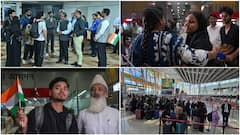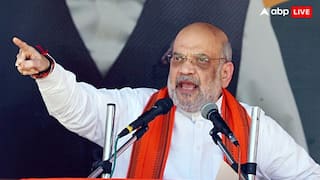Renowned Indian-American Economist Raj Chetty Honoured With Top Harvard University Prize
Chetty, Professor of Economics at Harvard University is also director of Opportunity Insights, a group of economists based at Harvard who study inequality.

Prominent Indian-American economist Raj Chetty has been awarded the coveted George Ledlie Prize for wielding big data to break myths about who achieves the American Dream and the obstacles faced by others.
Along with Chetty, Biologist Michael Springer, professor of systems biology at Harvard Medical School, who created a better, faster COVID test system to help deal with the spread of COVID, was also honoured with the coveted Harvard University’s George Ledlie Prize.
Springer also helped design and operate the new Harvard University Clinical Laboratory (HUCL), which managed testing and samples.
Chetty, Professor of Economics at Harvard University is also director of Opportunity Insights, a group of economists based at Harvard who study inequality.
“Raj’s groundbreaking work on economic mobility and his efforts to share this data with policymakers are making the American Dream more accessible to all,” said University Provost and Chief Academic Officer Alan M. Garber.
“Mike and Raj are distinguished researchers who have greatly advanced their respective scientific fields. But they are also committed to improving the well-being of other people, now and in the future,” said Garber.
The award is bestowed “no more frequently than every two years to a member of the Harvard community who has “made the most valuable contribution to science, or in any way for the benefit of mankind,” the university said on August 9 in a press release.
Chetty said he became interested in this work because of his own background coming to the US from India with his parents when he was 9 years old. He said he saw the disparities not only between New Delhi and the US but also between himself and his cousins.
“My parents, who grew up in very low-income families and villages in South India...the opportunities they had were greatly shaped by the fact that they happened to be the ones who were picked to get a higher education in their families.” Chetty said it was common at that time in developing countries that a family would pick only one child to get advanced education because they couldn’t afford to educate all the kids.
“And it so happened to be that my mom was the one chosen in her family, and my dad was the one chosen in his family,” he said.
“And I could kind of see how that’s played out through the generations in my own family, through the opportunities my cousins have had versus what I’ve had... ending up here at Harvard and the various opportunities I’ve had, I felt have stemmed from that.” Chetty said one of the most impactful outcomes they have been able to observe is the role geography plays in children’s outcomes.
“There are some places in America where kids with the exact same background have much better chances of rising up,” he said. “There are other places where they look much worse. So that was interesting in and of its own right, because it teaches you something about the origins of economic opportunity, that it really matters where you grow up. It’s about your community, schools, and neighbourhood.
Chetty’s earlier work focused on the fading American Dream, neighbourhood variation, and the role of childhood environment as a key driver of economic mobility. He has since gone on to explore other factors, including the role of racial disparities and social capital and connections. This has led to research on public-policy levers — reducing racial and economic segregation, investing in place-based policies, and strengthening higher education — to increase equity and opportunity.
Chetty notes that already, real-world impacts are being seen from this research. For one, the Housing and Urban Development Agency has redesigned some affordable-housing policies to increase access to higher-opportunity neighbourhoods, and several cities have undertaken new job-training programs as part of broader place-based initiatives.
Chetty said the recognition of his work with the Ledlie Prize has meant a lot in part because of its recognition of economics as a science.
He added, thinking about his mother, a pulmonologist, “coming from a family of people in natural sciences it was especially meaningful.”
(This story is published as part of the auto-generated syndicate wire feed. Apart from the headline, no editing has been done in the copy by ABP Live.)
Related Video
Breaking: Dehradun Student Murder Sparks Nationwide Outrage, Police Deny Racial Angle Amid FIR Contradictions





































